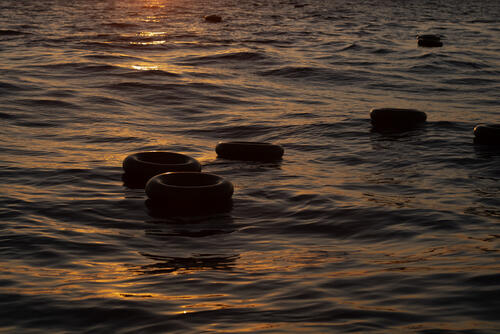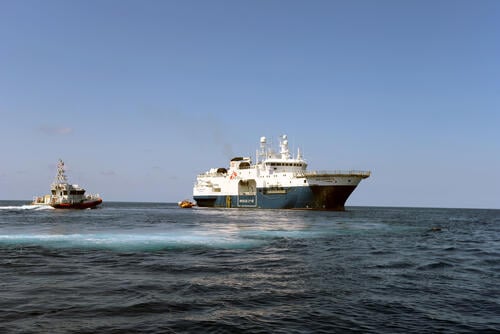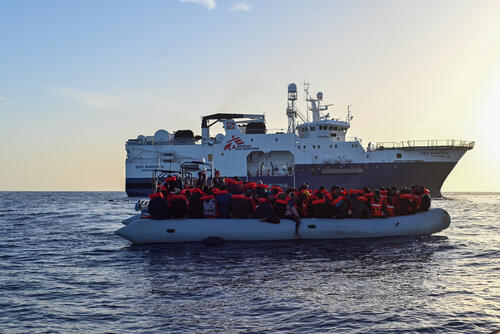In the Central Mediterranean Sea, Médecins Sans Frontières (MSF) is witnessing appalling levels of human suffering. MSF has been running search and rescue (SAR) activities since 2015 as a direct response to European Union (EU) policies of disengagement and non-assistance along this stretch of the sea. Working on eight different SAR vessels, independently or in partnership with other non-governmental organisations (NGOs), our teams have provided lifesaving assistance to more than 90,000 people. On board our rescue ships, we have treated the physical and mental health consequences—the human costs—of EU migration policies in the Central Mediterranean.
In May 2021, MSF launched operations on board the rescue vessel Geo Barents and has rescued 9,411 people at risk of drowning between then and September 2023. The people were rescued by MSF from unseaworthy boats that had embarked on the perilous journey, often in bad weather conditions, from Libya and, since March 2023, increasingly from Tunisia as well. On board Geo Barents, many have told us that taking to the sea was often the only option left to them.
MSF has released a new report, “No one came to our rescue”: The human costs of European migration policies in the Central Mediterranean.
Drawing on operational and aggregated medical data, survivor testimonies, and observations of MSF staff gathered on board Geo Barents, this report details the scale of rights violations witnessed by MSF during the first three trimesters of 2023, as well as the nature of the new restrictions applied against NGO ships and the consequences for people making the dangerous crossing to Europe.
While MSF continues to respond to the humanitarian crisis in the Central Mediterranean by providing assistance including emergency medical care, we call upon the EU and its member states to immediately change course and to prioritise the safety of those seeking sanctuary at European shores.





